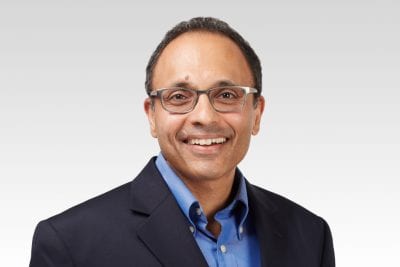Skift Take
RateGain, a 15-year-old travel tech firm, wants to position itself for growth post-pandemic by raising capital. Its private equity sponsor TA Associates also wants a payday, and no wonder.
Travel tech company RateGain, backed by private equity firm TA Associates, told regulators in India on Tuesday that it planned to go public by listing on India’s stock market.
TA Associates has a 22.8 percent stake in the tech vendor via its affiliate Wagner. According to the filings, the firm will sell a majority of its shares, 17 million, in the initial public offering. The company’s founders are selling some of their shares, too.
The initial public offering will also involve issuing shares, which the company hopes will raise an additional $54 million (400 crore rupees). The timing depends on regulatory approval.
RateGain, founded 15 years ago and based in Noida, India, offers business intelligence, distribution, and social media management services. Its 1,400 clients include hotels, airlines, railways, car rental companies, and cruise lines. It is one of the world’s largest managers of travel data. If, as a traveler, you’ve booked a hotel room online through price comparison, or metasearch, or through a corporate booking tool, you’ve probably used RateGain’s technology without knowing it.
The pandemic hurt the company, as it did most companies in the travel sector. RateGain’s revenue dropped to roughly $34 million (250.7 crore rupees) in the fiscal year ending March 31, compared to revenue of about $53 million (398.7 crore rupees) in the previous fiscal year. It reported a loss of approximately $300,000 (27.8 crore rupees) in the fiscal year through March, increasing its prior year’s loss.

RateGain CEO Harmeet Singh. Source: RateGain
The move to go public had been a prized goal of the company’s sponsors before the pandemic happened. In October 2019, Harmeet Singh became RateGain’s CEO, as the founder of the company, Bhanu Chopra, moved to the chairman role. Singh has led more than 100 mergers and acquisitions at other technology companies. The firm’s sponsors saw Singh as someone who could help set up the company to list publicly. The company said it planned to use the proceeds from the initial public offering to pay down loans from Silicon Valley Bank and others. It will also use the capital to make strategic investments, acquisitions, and technology investments.
Before the pandemic, about half of RateGain’s revenue came from its channel management, or distribution, platform, primarily for hotels.
On the price comparison side, it has faced challenges by startups such as OTA Insight, which engaged in something of a price war on commissions with RateGain and other players before the pandemic.
Singh’s and Chopra’s broader post-crisis vision is to club pricing, distribution, social management, and other services together and make RateGain a one-stop shop for travel companies. They will likely first target hotel companies, many of which seek to simplify the number of software vendors they have to deal with in light of staffing shortages. Many hotels also want to avoid becoming more dependent on online travel agencies for distribution, and RateGain offers tools to encourage more direct bookings and analyze demand patterns.
RateGain’s executives believe that hotel companies and other travel suppliers will do more outsourcing to vendors such as themselves as the crisis wanes. They expect its services in revenue management, business intelligence, and data lakes will be appealing.
That said, everyone in hotel tech says their cloud-based service is “next-gen” and uses “artificial intelligence.” RateGain has claimed its product Optima MarketDrone stands out by tracking the intra-day rate changes at a hotel’s competitors and that the product is the only real-time hotel rate intelligence platform out there — pushing notifications to whichever device hotel revenue managers prefer. However other companies make rival claims for their services.
M&A for RateGain Is Likely Post-IPO
The company will need to continue building an ecosystem where disparate applications can work together smoothly to create a competitive advantage.
To fill gaps in its offering, it seems likely RateGain will do another acquisition post-IPO of a vendor in a value range of less than $75 million. Mergers and acquisitions would follow the company’s past pattern. On the channel management front, the company acquired DHISCO [which stands for the Distribution Hospitality Intelligent Systems Co.] in 2018.
In an interview conducted before the IPO filings, CEO Harmeet Singh said:
“For M&A, I also think about company culture. If a potential target is VC- [venture-capital]-backed and has little experience in making profits, its company culture may be too different from ours. For M&A, I also look for some extension and added penetration into new geographic markets.”
“As the market settles down, we’ll consider tuck-in acquisitions,” Singh said. “By that, I mean, the product [of the target company] may be pretty similar to what we offer, and a deal would mostly be a matter of consolidating the customer bases.”
Skift India Report
The Skift India Report is your go-to newsletter for all news related to travel, tourism, airlines, and hospitality in India.
Have a confidential tip for Skift? Get in touch
Tags: channel managers, digital distribution, distribution, hotel distribution, hotel tech, hotel tech stack, hotel technology, india, ipo, RateGain, software
Photo credit: The Casa Monica Resort and Spa in St. Augustine, Florida, is part of the Kessler Collection, which uses RateGain as a hotel tech vendor. RateGain backed by private equity firm TA Associates, plans to go public by listing on India's stock market. Kessler Collection
